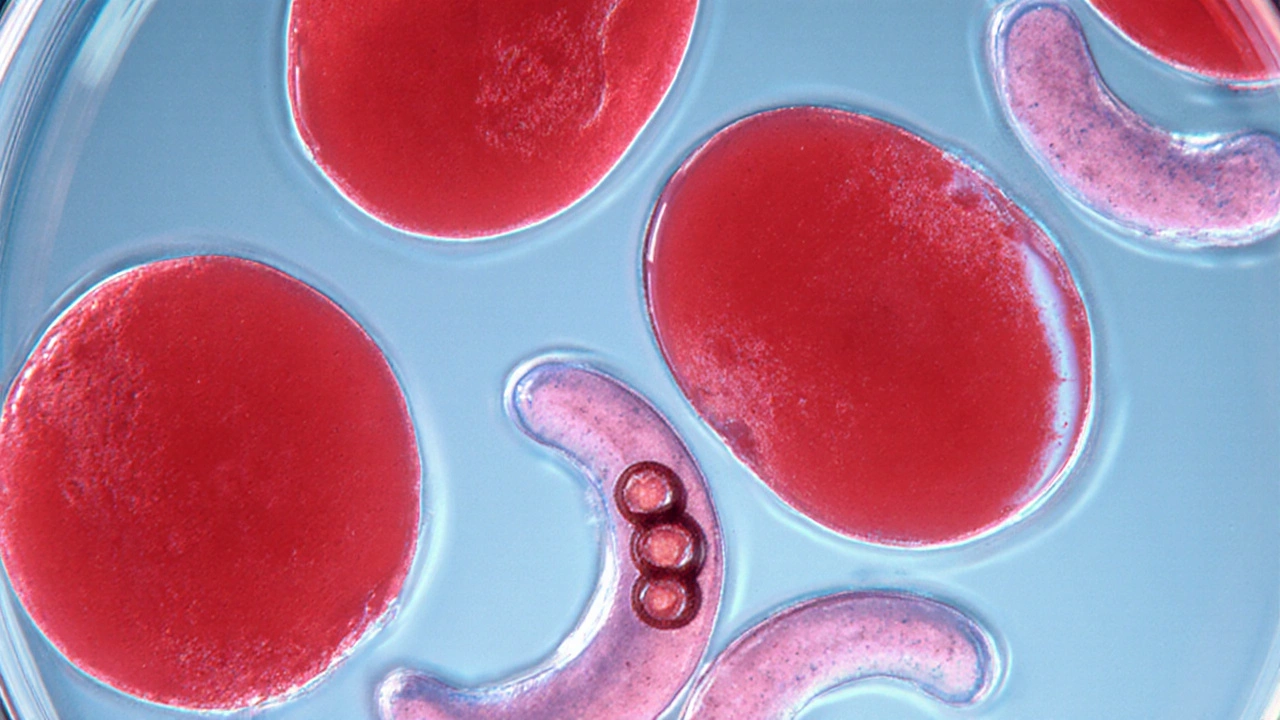Heterozygote Advantage Explained
When studying heterozygote advantage, the phenomenon where individuals carrying two different alleles enjoy a health or survival edge over both homozygous forms. Also known as overdominance, it plays a key role in how populations adapt to challenges like disease, climate, and diet.
This concept sits inside a broader evolutionary framework called balancing selection, a process that maintains multiple genetic variants in a population because each offers some advantage. Balancing selection influences genetic diversity, ensuring the gene pool isn’t wiped clean by single‑trait dominance. A classic illustration is the sickle cell trait, where carriers of one normal hemoglobin gene and one sickle‑cell gene gain protection against severe malaria, while those with two normal genes lack that shield and those with two sickle genes suffer from sickle‑cell disease.
Why It Matters Today
Understanding heterozygote advantage is more than an academic exercise. Genetic testing labs now flag carrier status for conditions like cystic fibrosis, thalassemia, and even certain drug‑response genes. When a patient is identified as a carrier, clinicians can anticipate how that genetic backdrop might affect medication metabolism or disease risk. For example, people with one copy of the CYP2D6 *4 allele may process certain antidepressants differently, influencing dosage decisions. The tie between a carrier state and drug response mirrors the broader lesson of heterozygote advantage: having two variants can sometimes create a sweet spot in physiology.
Pharmacogenomics articles on our site—covering everything from sildenafil comparisons to blood‑pressure combos—often touch on who benefits most from a given drug. Those benefits can hinge on genetic nuances that fit the heterozygote advantage model. If you’re reading about valsartan‑hydrochlorothiazide and gout risk, consider whether a genetic predisposition to higher uric acid levels interacts with the medication’s effect. That intersection of genetics and pharmacology is why we curate a mix of medication guides, supplement reviews, and disease overviews under the heterozygote advantage tag.
Beyond medicine, the concept helps explain why certain health‑related supplements gain traction. Vitamin C and cherry extract, for instance, are popular for managing uric acid levels—an area where carriers of specific gene variants might experience a clearer benefit. Our guide on supplements for high uric acid levels points out which nutrients align with common genetic profiles, giving readers a practical way to apply the theory.
In everyday life, the heterozygote advantage reminds us that “one size fits all” rarely works in health. Whether you’re choosing an ED medication, a heart‑support supplement, or a diet plan for asthma, the underlying genetics can tilt the balance toward one option or another. Our collection of articles below reflects that reality: each piece offers actionable advice while acknowledging the genetic factors that can tip the scales.
Ready to see how heterozygote advantage shapes real‑world health decisions? Dive into the posts below to find medication comparisons, safety tips, and supplement guides that all take genetics into account. You’ll discover why some carriers thrive on certain treatments, how balancing selection keeps our gene pool resilient, and what practical steps you can take based on your own genetic makeup.
Explore how sickle cell anemia and malaria are linked through genetics, evolution, and disease outcomes, with clear explanations, data, and practical health tips.

